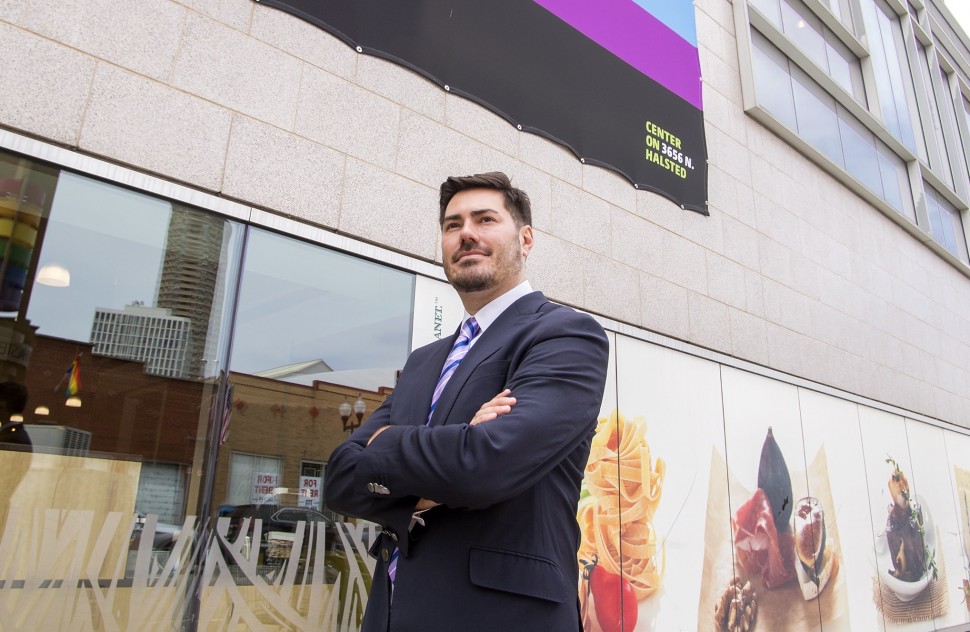Science has the tools to end the HIV epidemic in the U.S., but it persists because prevention and treatment efforts are not reaching the right people at the right time.
Scientists from HIV research centers around the country, their partners in the community providing HIV services and senior federal officials will convene at a summit in Chicago Oct. 28 and 29 to fix that problem.
It’s the first national meeting focused on integrating science and practice as part of the Ending the HIV Epidemic initiative, a new federal initiative involving agencies across the U.S. Department of Health and Human Services.
The National Institutes of Health (NIH) recently funded an $11.3 million effort for researchers to collaborate closely with local health officials and community groups to design and test implementation techniques that take local issues into account. Northwestern University Feinberg School of Medicine is the coordinating center of the 65 awards to scientists at 23 university HIV/AIDS Research Centers, all NIH funded.
The funding for the coordinating center and initial summit came to the Third Coast Center for AIDS Research (CFAR) -- a collaboration between Northwestern, University of Chicago and local health departments and community organizations.
“We have treatments and prevention programs that are highly effective, ways of diagnosing people that are very sensitive, and methods to identify and respond to new HIV cases. But we haven’t scaled them up to reach the right people at the right time,” said Brian Mustanski. “We have the tools to end the epidemic. Let’s use science to put them into practice.”
Mustanski is co-director of the Third Coast CFAR, co-principal investigator of the coordinating center and professor of medical social sciences at Feinberg.
The research will focus on implementation science, an important field to discover how to accelerate discovery to treatment. The conference will investigate how to best deliver evidence-based interventions and services to populations that face a disproportionate risk of HIV, including black and latinx women and men, transgender women and youth 13 to 24 years old.
Most new HIV cases in the U.S. are concentrated in specific geographic areas in 48 counties (where more than 50% of HIV diagnoses occurred in 2016 and 2017), Washington D.C., and Puerto Rico. In addition, there are seven states that have a disproportionate occurrence of HIV in rural areas.
In Illinois, Cook County accounted for 72% of new HIV diagnoses in 2016, and is the fourth highest county in the country for the number of new HIV diagnoses (source: AIDSVu.org).
“HIV doesn’t affect everyone equally,” said Nanette Benbow, co-principal investigator of the coordinating center and a research assistant professor in psychiatry and behavioral sciences at Feinberg. “Geographic areas impacted by multiple health problems keep showing up time and time again related to other systemic societal issues, such as lack of access to health care, discrimination, poverty and education.”
Researchers will collaborate with local health officials, health care providers and community groups to design and test implementation techniques.
“This community engagement is vital to develop the interventions that will meet a community’s unique needs,” said Benbow, who also is also co-director of the Third Coast Center for AIDS Research Behavioral, Social and Implementation Sciences Core.
The new initiative will focus on implementing proven HIV treatment and prevention tools. These include a daily anti-retroviral therapy that suppresses HIV to undetectable levels and prevents transmission of the virus to others; a prevention pill (PrEP) that reduces the risk of acquiring HIV by 95% when taken daily; and an emergency post-exposure drug (PEP), which can prevent HIV infection if begun within three days of exposure and taken for an additional 28 days.
“But many factors get in the way of people taking medication,” Benbow said. “If you lack access to care or are not getting your meds because you lost your job and health care, or you are struggling with mental health problems or substance use disorders, or have difficulties with childcare, all of that gets in the way. If your life is in upheaval and you’re in survival mode, taking your medication may not be your number-one priority.”
Mustanski added, “The summit will launch collaboration across these projects, and through this collaboration we can apply what is learned at the local level and use it to inform best practices for future implementation to end the epidemic.”


